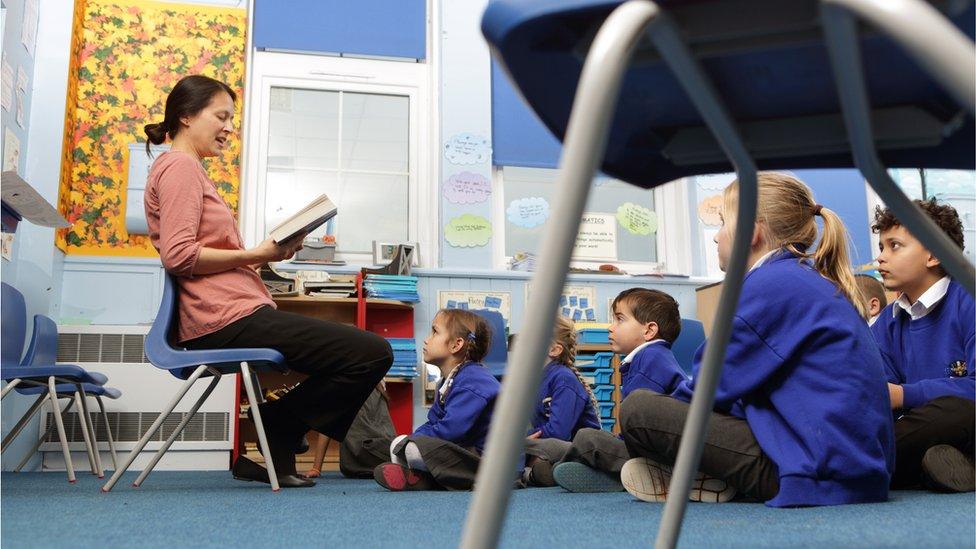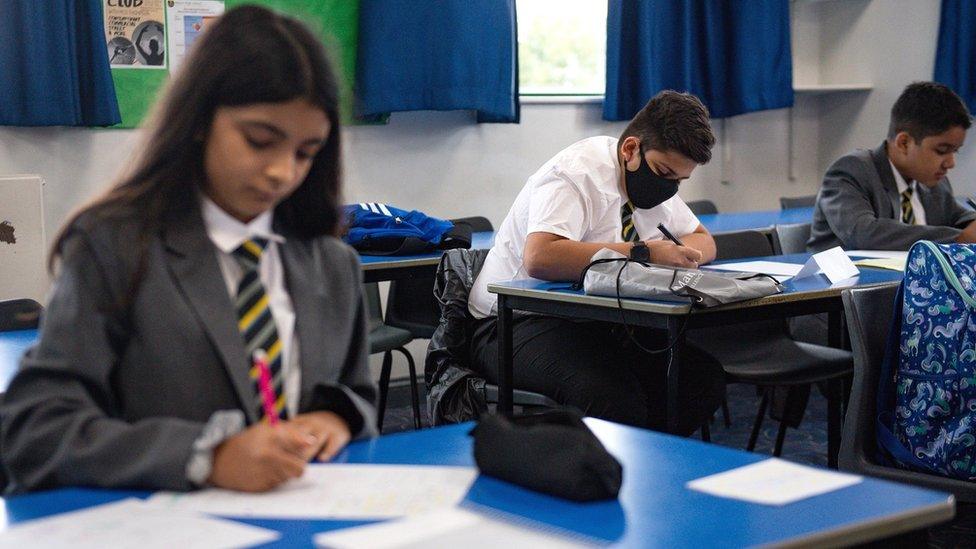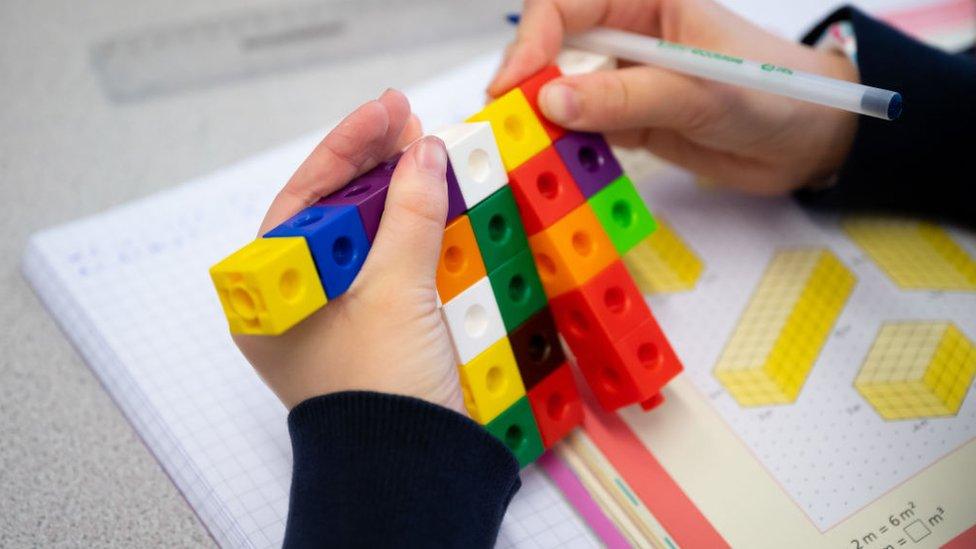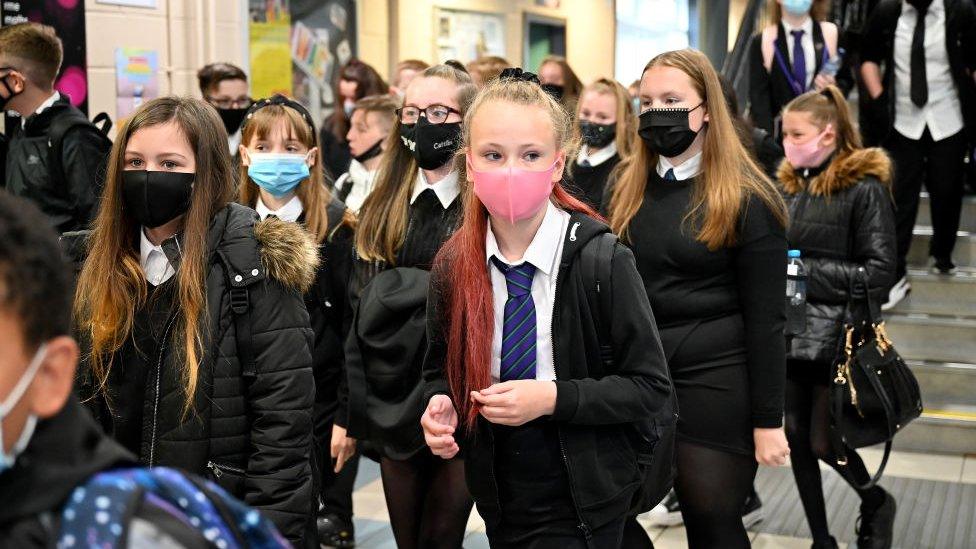Covid: School return 'in line' with science, says UK's Welsh Secretary
- Published

Some primary school pupils are already back as part of a phased return
England's school return plan is "definitely in line" with scientific advice, the Welsh Secretary has said - as Wales takes a different approach.
Education Minister Kirsty Williams said reopening all schools at once would pile pressure on the NHS.
Health Minister Vaughan Gething reiterated earlier commments from First Minister Mark Drakeford that advice said it was "not safe".
Schools in Wales face a phased return, but English pupils return on 8 March.
Welsh Secretary Simon Hart MP said any differences were "political".
But the Welsh Government has cited advice from the UK scientific advisory group Sage, external, which suggested sending all children back to school at the same time could lead to a "10-50%" increase in the reproduction (R) number.
Health Minister Vaughan Gething told Wednesday's Covid briefing: "The advice from the chief medical officers and scientific evidence advice isn't really any different within the UK.
"What England have chosen to do though, is they've chosen to move away from the advice of having a more phased approach to school reopening, but to have a 'big bang' reopening on 8 March.
"The consequence of that is they're having to have a bigger gap between that intervention and when they're next contemplating doing something else."
'Extra pressure'
During a visit to a primary school in Cardiff, Education Minister Kirsty Williams told BBC Wales: "I'm not aware of another country anywhere in the world that after such a prolonged period of lockdown and of such a peak in cases has then returned all their children all at once.
"We've been advised if you bring all children back in one big bang that potentially has a massive effect on the R number.
"And we will see rates begin to climb again and we will see extra pressure being put back on our NHS.
"Nobody wants to go there. That's why we are doing it carefully and cautiously."

Secondary school pupils are expected back in class after the Easter holidays
UK cabinet minister Mr Hart said it was better to align the four nations on Covid activity, but admitted that had not always been achieved.
"Seven out of 10 times we probably do align, there are some examples where we haven't. There is justification of that occasionally, if the evidence shows a different approach is necessary in Wales compared to the rest of the UK then that is fine - that's what devolution is about."
But Mr Hart said that "explanation" of the evidence for differences was important as "if we don't that can lead to the impression that these decisions are purely political."


The process of reopening education has started quicker in Wales - the youngest pupils started back this week.
But England's move to get all pupils back in class on or soon after, 8 March, while under current plans, tens of thousands of Welsh pupils won't return for at least a month after that has some querying claims of prioritising education.
The education minister is also talking about secondary pupils going back basically on a part-time basis, while at the same time there's talk of easing restrictions on other parts of the economy and society.
Wales' more cautious approach to moving back to face-to-face teaching is broadly in line with Scotland and has the backing of the Welsh Government scientific advisers, but that's not the only consideration.
There is a sense that Kirsty Williams would push further on this is she could, but discussions with local authorities and education unions play a key role in the decision making around schools.
And some proposals haven't been pursued because they would not necessarily have the backing of councils and particularly some unions.
- Published23 February 2021

- Published22 February 2021
